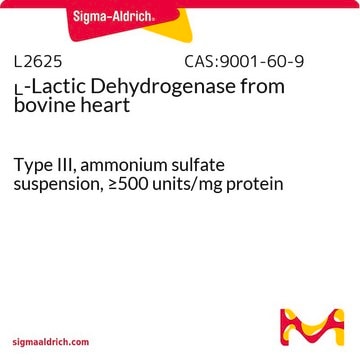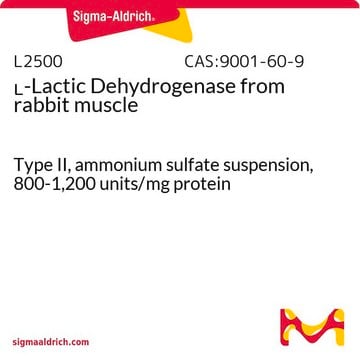L2011
D-Lactic Dehydrogenase from Lactobacillus leichmannii
ammonium sulfate suspension, ≥250 units/mg protein (biuret)
Sinónimos:
Lactate, (R)-Lactate:NAD+ oxidoreductase, D−LDH
About This Item
Productos recomendados
form
ammonium sulfate suspension
Quality Level
specific activity
≥250 units/mg protein (biuret)
foreign activity
Malic dehydrogenase <0.5% of base activity
storage temp.
2-8°C
General description
Biochem/physiol Actions
Unit Definition
Physical form
Storage Class
12 - Non Combustible Liquids
wgk_germany
WGK 1
flash_point_f
Not applicable
flash_point_c
Not applicable
ppe
Eyeshields, Gloves, multi-purpose combination respirator cartridge (US)
Certificados de análisis (COA)
Busque Certificados de análisis (COA) introduciendo el número de lote del producto. Los números de lote se encuentran en la etiqueta del producto después de las palabras «Lot» o «Batch»
¿Ya tiene este producto?
Encuentre la documentación para los productos que ha comprado recientemente en la Biblioteca de documentos.
Artículos
Instructions for working with enzymes supplied as ammonium sulfate suspensions
Nuestro equipo de científicos tiene experiencia en todas las áreas de investigación: Ciencias de la vida, Ciencia de los materiales, Síntesis química, Cromatografía, Analítica y muchas otras.
Póngase en contacto con el Servicio técnico







